#Tony Bennett influence on music
Explore tagged Tumblr posts
Text
Unveiling the Enigma: 15 Surprising Facts About Tony Bennett, King of the American Songbook
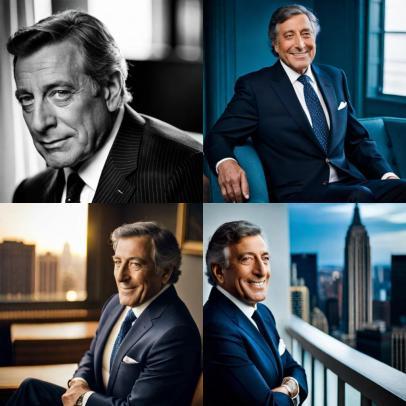
View On WordPress
#American Songbook icon#Iconic Performer#Jazz Singer#Lesser-Known Facts#Music Legend#Musical Genius#Surprising Details#Tony Bennett biography#Tony Bennett discography#Tony Bennett facts#Tony Bennett influence on music#Tony Bennett jazz singer#Tony Bennett Legacy#Tony Bennett lesser-known facts#Tony Bennett life and legacy#Tony Bennett music legend#Tony Bennett musical achievements#Tony Bennett songs#Tony Bennett surprising details#Tony Bennett Tribute#Tony Bennett tribute concert#Tony Bennett&039;s musical journey
2 notes
·
View notes
Text
He left his heart in San Francisco
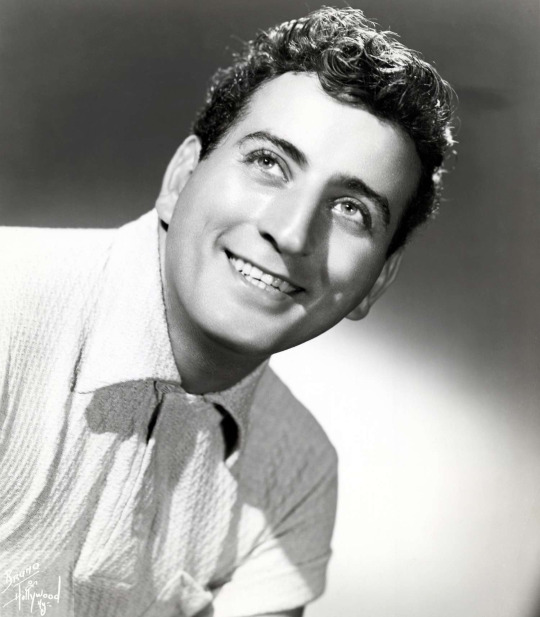
In Loving Memory of Tony Bennett
(1926 - 2023)
With heavy hearts and profound sadness, we announce the passing of a legendary icon in the world of music, Anthony Dominick Benedetto, famously known as Tony Bennett. On July 21, 2023, surrounded by loved ones, he peacefully departed from this world, leaving behind an indelible mark on the hearts of millions.
Born on August 3, 1926, in Astoria, Queens, New York, Tony's journey began in a modest Italian-American family. From a young age, his passion for music blossomed, and his extraordinary talent soon became evident. In 1949, he caught the attention of Pearl Bailey, leading to his first big break and the start of an illustrious career that spanned over seven decades.
Tony Bennett's velvety voice, timeless charm, and extraordinary range captured the imaginations of generations. With hit songs like "I Left My Heart in San Francisco," "The Way You Look Tonight," and "Fly Me to the Moon," he cemented his status as a true music legend and a leading interpreter of the Great American Songbook.
Throughout his career, Tony's talent garnered numerous accolades, including multiple Grammy Awards, honorary doctorates, and induction into the Grammy Hall of Fame. He remained active well into his later years, demonstrating his enduring dedication to his craft and inspiring countless musicians worldwide.
Beyond the stage, Tony was admired for his philanthropic endeavors and unwavering commitment to various charitable causes. He used his fame and influence to advocate for arts education, supporting countless aspiring artists to pursue their dreams.
Tony Bennett's legacy extends far beyond his music. His genuine warmth, kindness, and gentle spirit touched the lives of everyone he encountered. He was a devoted husband, father, and friend, cherishing moments spent with his loved ones.
As we bid farewell to this musical genius, we celebrate a life lived to the fullest, a life that resonated with melody, harmony, and love. Tony Bennett's spirit will forever reverberate through the melodies he gifted the world, reminding us that music transcends time and continues to unite us all.
In the hearts of his family, friends, and adoring fans, Tony will forever hold a special place, a beacon of inspiration and joy. Though he may have departed from this earthly stage, his timeless legacy will remain, an eternal symphony of love and artistry.
In lieu of flowers, the family kindly requests donations to be made to the Tony Bennett Foundation, continuing his commitment to empowering young artists.
Rest in peace, dear Tony Bennett. Your voice will continue to echo through the halls of history, and your memory will forever serenade our souls. Thank you for sharing your extraordinary gift with the world.
"Life teaches you how to live it if you live long enough." - Tony Bennett
70 notes
·
View notes
Text
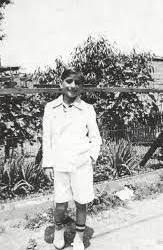
He was the proud son of Italian immigrants, and he was born on August 3, 1926 in Astoria, Queens, New York. His mother was a seamstress and his father was a grocer. His father died when he was 10.
He grew up during the Great Depression and quickly learned what life was about. With no father, the family lived in poverty, and by the age of 16, the young boy had dropped out of school to support his family.
In November 1944, during the final stages of World War II, he was drafted into the United States Army and fought in the Battle of the Bulge. After seeing the horrors of war firsthand, fighting Nazis, and liberating a concentration camp, he said, "My experience in the Army turned me into a lifelong pacifist and it’s my hope that all wars and violence will become a thing of the past."
He added, "Anybody who thinks that war is romantic obviously hasn't gone through one."
While in the army, he also saw what racism was about firsthand. He got demoted for dining with a black friend, at a time when the Army was still racially segregated.
“An Army officer blasted the two soldiers — one Black and the other White — with a hate-filled rant for being together in public,” according to The Washington Post. “In the segregated military of the day, the two men were not allowed to socialize. Back then, the punishment for Black and White soldiers associating with one another was more severe than if they fraternized with civilians in occupied Germany.”
“This officer took out a razor blade and cut my corporal stripes off my uniform right then and there,” he wrote. “He spit on them and threw them on the floor, and said, ‘Get your ass out of here!’”
~~~~~
He had been interested in singing since he was a child, and after his discharge from the Army and with the help of the GI Bill, he started studying at the American Theatre Wing. He continued performing whenever he could, even while waiting on tables.
One day, singer Pearl Bailey recognized his singing talents and asked him to open for her in Greenwich Village. There he met entertainer Bob Hope who was also impressed with him, and suggested he change his name.
He would eventually cut a demo, remembering his difficult time, growing up, singing the words, "I left my... soul behind me" in the song, "Boulevard of Broken Dreams."
By this time, he had taken Bob Hope's advice and had simplified his name, from Anthony Dominick Benedetto to . . . Tony Bennett.
“Tony Bennett, a singer whose melodic clarity, jazz-influenced phrasing, audience-embracing persona and warm, deceptively simple interpretations of musical standards helped spread the American songbook around the world and won him generations of fans, died on Friday at his home of many decades in Manhattan. He was 96,” according to the New York Times.
“Mr. Bennett learned he had Alzheimer’s disease in 2016, his wife, Susan Benedetto, told AARP The Magazine in February 2021. But he continued to perform and record despite his illness; his last public performance was in August 2021, when he appeared with Lady Gaga at Radio City Music Hall in a show titled ‘One Last Time.’
“Mr. Bennett’s career of more than 70 years was remarkable not only for its longevity, but also for its consistency. In hundreds of concerts and club dates and more than 150 recordings, he devoted himself to preserving the classic American popular song, as written by Cole Porter, the Gershwins, Duke Ellington, Rodgers and Hammerstein and others.”
The Peace Page last shared a story on Tony Bennett in 2019. This is an updated story, remembering Mr. Bennett’s life.
The Peace Page focuses on past and present stories—some seldom told, others simply forgotten, still others intentionally ignored. The stories and chapters are gathered from writers, journalists, and historians to share awareness and foster understanding—to bring people together. We thank you for taking the time to be here and helping us share awareness.
~~~~~
In July 1961, Mr. Bennett was performing in Hot Springs, Ark., and about to head to the West Coast, according to the New York Times.
Bennett's accompanist and arranger for more than 50 years, Ralph Sharon, found sheet music to a song, stashed in a drawer, along with some shirts, according to NPR. “He packed it before hitting the road.”
"I always remember," recounts Sharon. I took this out of my bag, and looked at it, and called Tony. And I said, 'You know something, we're going to San Francisco next.' And I said, 'This is a song here that might be interesting.' "
“Mr. Sharon and Mr. Bennett decided that [the song written by George Cory and Douglass Cross] would be perfect for their next date, at the Fairmont Hotel in San Francisco, and it was.”
“They recorded the song — of course it was “I Left My Heart in San Francisco” — six months later, in January 1962. It won Mr. Bennett his first two Grammys, for best male solo performance and record of the year, and worldwide fame.”
Tony Bennett would go on to become one of the most beloved singers in history, winning 20 Grammy Awards, including a Lifetime Achievement Award, and two Emmy Awards. He has sold over 50 million records worldwide.
But, he never forgot his past, and he never forgot the promise of America, saying, "we’re the greatest country," but adding the reason is "because we’re all different nationalities and all different religions."
He remembered when his good friend Harry Belafonte, who he had known since the 40s when they were both just starting out, gave him a call and "told me what was going on in the South and asked me to join Dr. King on his march to Selma.”
Bennett recalled on CNN in 2013, “I didn't want to do it, but then he told me what went down — how some Blacks were burned. Had gasoline thrown on them and they were burned. When I heard that, I said, 'I'll go with you.'"
“I knew it was important to be there and support. I remember it was decided that we wanted to set up a performance for the marchers one night, but we were in an open field. One of the organizers had a friend who owned a funeral home and they brought in 18 wooden coffins and we used that as the foundation for a stage that night."
“I kept flashing back to a time twenty years ago when my buddies and I fought our way into Germany,” he wrote in his autobiography. “It felt the same way down in Selma: the white state troopers were really hostile, and they were not shy about showing it.”
At the march, Bennett also met Detroit civil rights activist Viola Liuzzo, who had driven Bennett to the airport, according to the Detroit Free Press. The next day, Liuzzo was shot and killed by the Ku Klux Klan .
~~~~~
Bennett continued speaking out for civil rights and would also speak out against apartheid in South Africa.
He would also say his war experience gave him "a social conscience," saying he believes "every gun in the world should melt somehow and as soon as possible," and comparing America’s gun culture and the political tolerance of it to Hitler’s Germany.
He said, "I consider myself a humanist."
When he received the Jazz Foundation of America Lifetime Achievement Award, presenter Ben Stiller mentioned his admiration for the singer in taking on social justice issues long before it was fashionable, from marching in Selma to refusing to play in South Africa during Apartheid, according to Billboard.
~~~~~
“There is one other very important thing about Bennett to note and to admire,” according to the The Editorial Board of the Chicago Tribune. “He continued to perform despite the onset of dementia.
“For anyone who watched his late-in-life work with Lady Gaga, here was a remarkable example of someone who showed the world one of the oft-forgotten truths about a condition that afflicts so many Americans: People with advanced levels of dementia still can contribute a great deal, especially if it is something they have done for years.
“Bennett struggled to remember names and faces, but when he started to sing, he went on a kind of autopilot, the familiar smile returning to his face and the notes and even the lyrics flowing like good wine. This was familiar to many people who knew dementia well: a reminder that the original person always is in there, communicating and loving just as at the times when it was far more obvious to those on the outside. In his courage, Bennett offered a great deal of comfort to those who best knew what he was facing.
“Fortunately, Bennett managed to surround himself with kind family members and fellow artists who protected his reputation as they did his spirit.”
~~~~~
The Hollywood Bowl said, "Throughout his life, Tony Bennett has been a dedicated pacifist and proactive humanitarian selflessly supporting many causes whose goals benefit the lives of millions. His love for his country has earned him the distinction of national treasure and the United Nations has named him a Citizen of the World as one of their foremost ambassadors."
Bennett remembered in the army when he couldn’t dine with his Black friend.
“I couldn’t get over the fact that they condemned us for just being friends, and especially while we served our country in wartime,” Bennett wrote in his 1998 autobiography, “The Good Life.” “There we were, just two kids happy to see each other, trying to forget for the moment the horror of the war, but for the brass it just boiled down to the color of our skin.”
Bennett remembered being “terrified by the violence,” but it only confirmed his belief that no one “should suffer simply because of the color of his skin.” He continued to speak out against bigotry and hatred throughout his career, often performing with African American entertainers at a time when it wasn’t socially acceptable, according to The Washington Post.
According to an interview with Susan C. Ingram in October 2018, Bennett recalls what his former neighbor Ella Fitzgerald told him - “Tony, we are all here.” "And Ella was right, we share this planet together and we have more in common than we have differences since we are all human."
~ jsr
The Jon S. Randal Peace Page
20 notes
·
View notes
Text

GAY ICON JOHNNIE RAY
Music critics have cites Johnnie Ray as a major influence on modern popular music. Tony Bennett, a music icon himself, called Ray the "father of rock and roll". With his rhythm-based singing style and animated stage personality, Ray’s music had strong jazz and blues influences.
After signing with Colombia Records in 1951, Ray was assigned to their Olek Label. Okek featured R&B music with primarily African American performers. When Colombia discovered Ray was Caucasian, they move him to their main label (racism operated in mysterious ways). Ray’s 78rpm single “Cry” sold over two million copies and he quickly became a teen idol.
This led to an appearance on Ed Sullivan’s “Toast of the Town” TV show, and being cast in “There's No Business Like Show Business” (1954) along side Ethyl Merman and Marilyn Monroe.
Prior to being signed to Columbia, Ray was arrested in Detroit for soliciting an undercover cop for sex in the restroom of a burlesque theater. He pleaded guilty but since he was relatively unknown, newspapers did not report the story. But after his success, rumors about Ray being a homosexual began to spread.
Despite this, Ray married Marilyn Morrison, daughter of a nightclub the owner in 1952. The event was attended by then New York Mayor Vincent Impellitten and the ceremony made headlines New York Daily News.
According to friends, Morrison was aware of the rumors and said she "straighten it out." But the couple separated in 1953 and divorced in 1954.
During this time, Ray became friends with journalist and television game show panelist Dorothy Kilgallen. It’s been rumored that her youngest child, Kerry Kollmar, was fathered by Ray.
In 1959, Ray was arrested again for soliciting an undercover cop at a gay bar described as “a haven for musicians”. Ray was found not guilty at the trial.
Ray suffered from alcoholism most of his life, and he was arrested at least once for public intoxication. In 1960, he was hospitalized for tuberculosis and according to his biographer Jonny Whiteside, he quit drinking. But in 1969, after Ray returned to the United States from a European tour with Judy Garland, he began drinking heavily. In February 1990, Ray died from liver failure in Los Angeles.
#gay icons#Johnnie ray#Dorothy kilgallen#father of rock and roll#Tony Bennett#Columbia records#alcolohic#gay or bisexual#ethyl merman#marilyn monroe
30 notes
·
View notes
Text
Tony Bennett, Jazzy Crooner of the American Songbook, Is Dead at 96
From his initial success at the Paramount in Times Square through his generation-spanning duets, his career was remarkable for both its longevity and its consistency.
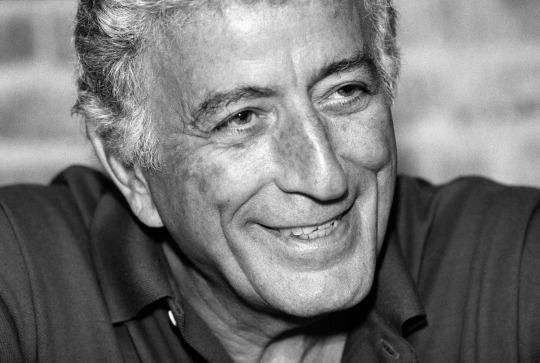
By Bruce Weber
July 21, 2023
Tony Bennett, a singer whose melodic clarity, jazz-influenced phrasing, audience-embracing persona and warm, deceptively simple interpretations of musical standards helped spread the American songbook around the world and won him generations of fans, died on Friday at his home of many decades in Manhattan. He was 96.
His publicist, Sylvia Weiner, announced his death.
Mr. Bennett learned he had Alzheimer’s disease in 2016, his wife, Susan Benedetto, told AARP The Magazine in February 2021. But he continued to perform and record despite his illness; his last public performance was in August 2021, when he appeared with Lady Gaga at Radio City Music Hall in a show titled “One Last Time.”
Mr. Bennett’s career of more than 70 years was remarkable not only for its longevity, but also for its consistency. In hundreds of concerts and club dates and more than 150 recordings, he devoted himself to preserving the classic American popular song, as written by Cole Porter, the Gershwins, Duke Ellington, Rodgers and Hammerstein and others.
From his initial success as a jazzy crooner who wowed audiences at the Paramount in Times Square in the early 1950s, through his late-in-life duets with younger singers gleaned from a range of genres and generations — most notably Lady Gaga, with whom he recorded albums in 2014 and 2021 and toured in 2015 — he was an active promoter of both songwriting and entertaining as timeless, noble pursuits.
Mr. Bennett stubbornly resisted record producers who urged gimmick songs on him, or, in the 1960s and early ’70s, who were sure that rock ’n’ roll had relegated the music he preferred to a dusty bin perused only by a dwindling population of the elderly and nostalgic.
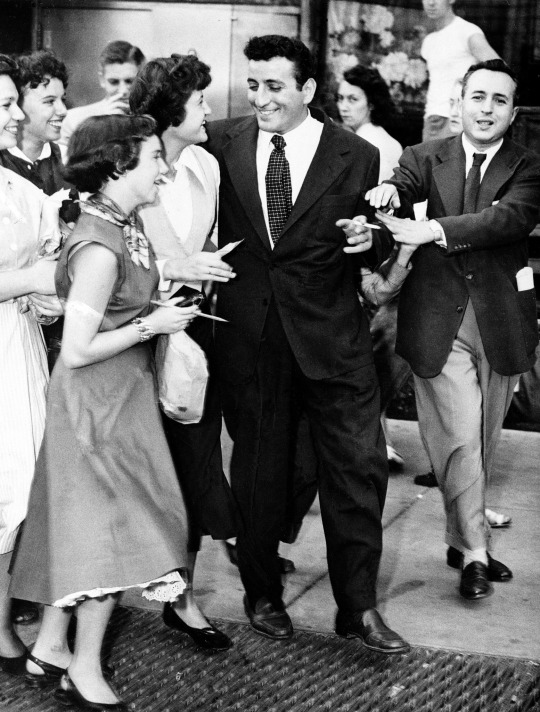
Instead, he followed in the musical path of the greatest American pop singers of the 20th century — Louis Armstrong, Bing Crosby, Judy Garland, Billie Holiday, Frank Sinatra — and carried the torch for them into the 21st. He reached the height of stardom in 1962 with a celebrated concert at Carnegie Hall and the release of his signature song, “I Left My Heart in San Francisco.” And though he saw his popularity wane with the onset of rock and his career went through a trough in the 1970s, when professional difficulties were exacerbated by a failing marriage and drug problems, he was, in the end, more than vindicated in his musical judgment.
“I wanted to sing the great songs, songs that I felt really mattered to people,” he said in “The Good Life” (1998), an autobiography written with Will Friedwald.
It’s hard to overstate Mr. Bennett’s lasting appeal. He was still singing “San Francisco” — which led many people to think he was a native of that city, though he was actually a through-and-through New Yorker — more than half a century later. He sang on Ed Sullivan’s show and David Letterman’s. He sang with Rosemary Clooney when she was in her 20s, and Celine Dion when she was in her 20s.
He made his film debut in 1966, in a critically reviled Hollywood story, “The Oscar,” playing a man betrayed by an old friend. And though he did not pursue an acting career, decades later he was playing himself in movies like the Robert De Niro-Billy Crystal gangster comedy “Analyze This” and the Jim Carrey vehicle “Bruce Almighty.” He was 64 when he appeared as a cartoon version of himself on “The Simpsons.” He was 82 when he appeared on the HBO series “Entourage,” performing one of his trademark songs, “The Good Life.”
A lifelong liberal Democrat, Mr. Bennett participated in the Selma-to-Montgomery civil rights march in 1965, and, along with Harry Belafonte, Sammy Davis Jr. and others, performed at the Stars for Freedom rally on the City of St. Jude campus on the outskirts of Montgomery on March 24, the night before the Rev. Dr. Martin Luther King Jr. delivered the address that came to be known as the “How Long? Not Long” speech. At the conclusion of the march, Viola Liuzzo, a volunteer from Michigan, drove Mr. Bennett to the airport; she was murdered later that day by members of the Ku Klux Klan.
Mr. Bennett also performed for Nelson Mandela, then the president of South Africa, during his state visit to England in 1996. He sang at the White House for John F. Kennedy and Bill Clinton, and at Buckingham Palace at Queen Elizabeth II’s 50th anniversary jubilee.
An ‘Elusive’ Voice
He won his first two Grammy Awards, for “San Francisco,” in 1963, and his last, for the album “Love for Sale,” with Lady Gaga, last year. Altogether there were 20 of them, including, in 2001, a lifetime achievement award. By some estimates, he sold more than 60 million records.
The talent that spawned this success and popularity was not so easy to define. Neither a fluid singer nor an especially powerful one, he did not have the mellifluous timbre of Crosby or the rakish swing of Sinatra. If Armstrong’s tone was distinctively gravelly, Mr. Bennett’s wasn’t quite; “sandy” was more like it. Almost no one denied that his voice was appealing, but critics strove mightily to describe it, and then to justify its appeal.
“The voice that is the basic tool of Mr. Bennett’s trade is small, thin and somewhat hoarse,” John S. Wilson wrote in The New York Times in 1962. “But he uses it shrewdly and with a skillful lack of pretension.”
In a 1974 profile, Whitney Balliett, the longtime jazz critic for The New Yorker, called Mr. Bennett “an elusive singer.”
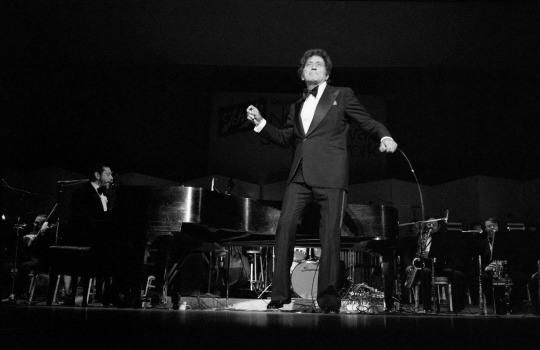
“He can be a belter who reaches rocking fortissimos,” Mr. Balliett wrote. “He drives a ballad as intensely and intimately as Sinatra. He can be a lilting, glancing jazz singer. He can be a low-key, searching supper-club performer.” But, he added, “Bennett’s voice binds all his vocal selves together.”
Most simply, perhaps, the composer and critic Alec Wilder said about Mr. Bennett’s voice, “There is a quality about it that lets you in.”
Indeed, what many listeners (including the critics) discovered about Mr. Bennett, and what they responded to, was something intangible: the care with which he treated both the song and the audience.
He had a storyteller’s grace with a lyric, a jazzman’s sureness with a melody, and in his finest performances he delivered them with a party giver’s welcome, a palpable and infectious affability. In his presentation, the songs he loved and sang — “Just in Time,” “The Best Is Yet to Come,” “Rags to Riches” and “I Wanna Be Around,” to name a handful of his emblematic hits — became engaging, life-embracing parables.
Frank Sinatra, whom Mr. Bennett counted as a mentor and friend, once put it another way.
“For my money, Tony Bennett is the best singer in the business,” he told Life magazine in 1965. “He excites me when I watch him. He moves me. He’s the singer who gets across what the composer has in mind, and probably a little more.”
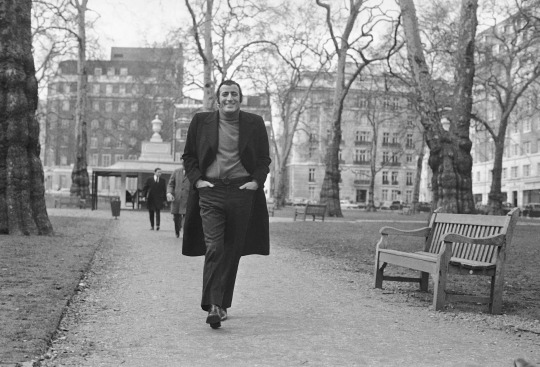
Mr. Bennett passed through life with as unscathed a public image as it is possible for a celebrity to have. Finding even mild criticism of him in reviews and interviews is no mean feat, and even his outspoken liberalism generally failed to attract vitriol from the right. (An exception was his call, after the drug-related deaths of Michael Jackson, Amy Winehouse and Whitney Houston, for the legalization of drugs, a view loudly denounced by William J. Bennett, the former drug czar, among others.)
With the possible exception of his former wives, everyone, it seemed, loved Tony Bennett. Skeptical journalists would occasionally try to pierce what they perceived as his perfect veneer, but they generally discovered that there wasn’t much to pierce.
“Bennett is outrageous,” Simon Hattenstone, a reporter for The Guardian, wrote in 2002. “He mythologizes himself, name-drops every time he opens his mouth, directs you to his altruism, is self-congratulatory to the point of indecency. He should be intolerable, but he’s one of the sweetest, most humble men I’ve ever met.”
Son of Queens
Anthony Dominick Benedetto was born on Aug. 3, 1926, in the Long Island City neighborhood of Queens, and grew up in that borough in working-class Astoria. His father, Giovanni, had emigrated from Calabria, in southern Italy, at age 11. His mother, Anna (Suraci) Benedetto, was born in New York in 1899, having made the sea journey from Italy in the womb. Their marriage was arranged. Giovanni and Anna were cousins; their mothers were sisters.
In New York, where Giovanni Benedetto became John, he was a grocer, but beleaguered by poor health and often unable to work. Anna was a factory seamstress and took in additional sewing to support the family. Anthony was their third child, their second son, and the first of any Benedetto to be born in a hospital. Giovanni, who sang Italian folk songs to his children — “My father inspired my love for music,” Mr. Bennett wrote in his autobiography — died when Anthony was 10.
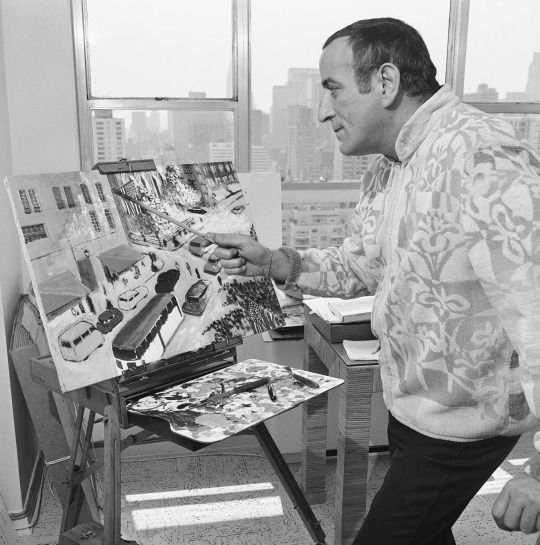
Anthony sang from an early age, and drew and painted, too. He would become a creditable painter as an adult, mostly landscapes and still lifes in watercolors and oils and portraits of musicians he admired, signing his paintings “Benedetto.” His first music teacher arranged for him to sing alongside Mayor Fiorello La Guardia at the opening of the Triborough Bridge (now the Robert F. Kennedy Bridge) in 1936.
For a time he attended the High School for Industrial Arts (now called the High School of Art and Design) in Manhattan, but he never graduated. He dropped out and found work as a copy boy for The Associated Press, in a laundry and as an elevator operator.
“I couldn’t figure out how to get the elevator to stop at the right place,” he recalled. “People ended up having to crawl out between floors.”
At night he performed at amateur shows and worked as a singing waiter. He had just begun to get paying work as a singer, using the stage name Joe Bari, when he was drafted.
He arrived in Europe toward the end of World War II, serving in Germany in the infantry. He spent time on the front lines, an experience he described as “a front-row seat in hell,” and was among the troops who arrived to liberate the prisoners at the Landsberg concentration camp, a subcamp of Dachau.
After Germany surrendered, Mr. Bennett was part of the occupying forces, assigned to special services, where he ended up as a singer with Army bands and for a time was featured in a ragtag version of the musical “On the Town” — directed by Arthur Penn, who would go on to direct “Bonnie and Clyde” and other notable movies — in the opera house in Wiesbaden.
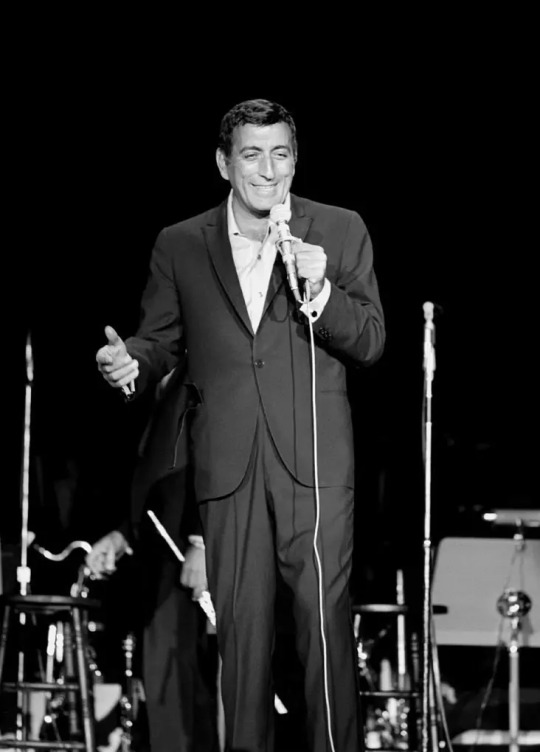
He returned to New York in August 1946 and set about beginning a career as a musician. On the G.I. Bill, he took classes at the American Theater Wing, which he later said helped teach him how to tell a story in song. He sang in nightclubs in Manhattan and Queens.
A series of breaks followed. He appeared on the radio show “Arthur Godfrey’s Talent Scouts,” the “American Idol” of its day. (The competition was won by Rosemary Clooney.) There are different versions of the biggest break in Mr. Bennett’s early career, but as he told it in “The Good Life,” he had been singing occasionally at a club in Greenwich Village where the owner had offered Pearl Bailey a gig as the headliner; she agreed, but only on the condition that Joe Bari stayed on the bill.
When Bob Hope came down to take in Ms. Bailey’s act, he liked Joe Bari so much that he asked him to open for him at the Paramount Theater. Hope had a condition, however: He didn’t like the name Joe Bari, and insisted it be changed. Dismissing the name Anthony Benedetto as too long to fit on a marquee, Hope christened the young singer Tony Bennett.
The Hits Roll In
The producer Mitch Miller signed Mr. Bennett to Columbia Records in 1950; “Boulevard of Broken Dreams” was his first single. Miller was known for his hit-making prowess, a gift that often involved matching talented singers with novelty songs or having them cover hits by others, for which he was criticized by more serious music fans and sometimes by the singers themselves.
He and Mr. Bennett had a contentious relationship. Mr. Bennett resisted his attempts at gimmickry; Miller, who believed that the producer and not the singer was in charge of a recording, applied his authority. Still, together they achieved grand success.
By mid-1951, Mr. Bennett had his first No. 1 hit, “Because of You.” That same year, his version of the Hank Williams ballad “Cold, Cold Heart” also hit No. 1; three years after Williams died in 1953, Mr. Bennett performed it in his honor at the Grand Ole Opry in Nashville.
Other trademark songs followed: “Rags to Riches” in 1953; “Stranger in Paradise,” from the Broadway show “Kismet,” also in 1953; Jule Styne, Betty Comden and Adolph Green’s “Just in Time,” from the show “Bells Are Ringing,” in 1956. That same year, Mr. Bennett was host of his own television variety show, a summer replacement for a similar show that starred another popular Italian American crooner, Perry Como. In 1958, he recorded two albums with the Count Basie band, introducing him to the jazz audience.
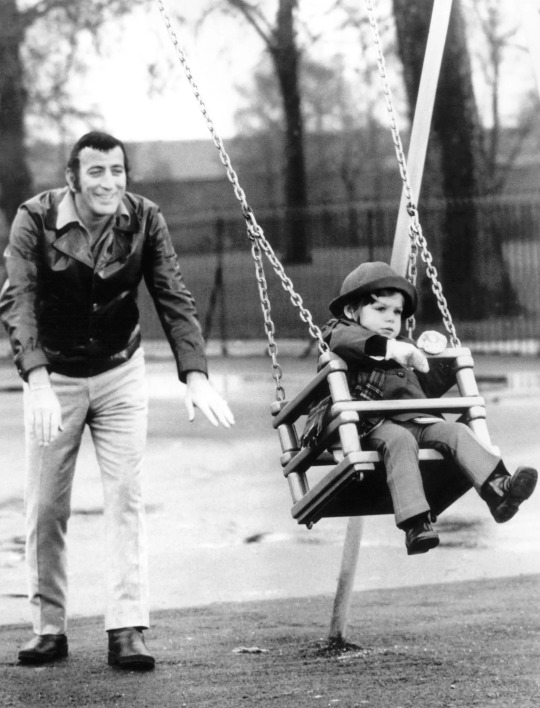
In the 1950s, Mr. Bennett toured for the first time, played Las Vegas for the first time and got married for the first time, to Patricia Beech, a fan who had seen him perform in Cleveland. The marriage would flounder in the 1960s, overwhelmed by Mr. Bennett’s perpetual touring, but their two sons would end up playing roles in Mr. Bennett’s career: the older one, D’Andrea, known as Danny, became his father’s manager, and Daegal, known as Dae, became a music producer and recording engineer.
In July 1961, Mr. Bennett was performing in Hot Springs, Ark., and about to head to the West Coast when Ralph Sharon, his longtime pianist, played him a song written by George Cory and Douglass Cross that had been moldering in a drawer for two years. Mr. Sharon and Mr. Bennett decided that it would be perfect for their next date, at the Fairmont Hotel in San Francisco, and it was.
They recorded the song — of course it was “I Left My Heart in San Francisco” — six months later, in January 1962. It won Mr. Bennett his first two Grammys, for best male solo performance and record of the year, and worldwide fame. In “The Good Life,” he wrote that he was often asked if he ever tired of singing it.
“I answer, ‘Do you ever get tired of making love?’” he wrote.
Just five months later, Mr. Bennett performed at Carnegie Hall with Mr. Sharon and a small orchestra. He got sensational reviews — though The Times’s was measured — and the recording of the concert is now considered a classic.
But as the 1960s proceeded and rock ’n’ roll became dominant, Mr. Bennett’s popularity began to slip. In 1969, he succumbed to the pressure of the new president of Columbia Records, Clive Davis, to record his versions of contemporary songs, and the result, “Tony Sings the Great Hits of Today!” — including the Beatles’ “Eleanor Rigby” and “Something” — was a musical calamity, a record that Mr. Bennett would later tell an interviewer made him vomit.
His relationship with Columbia soured further and finally ended, and by the middle of the 1970s Mr. Bennett had formed his own company, Improv Records, on which he recorded the first of two of his most critically admired albums, duets with the jazz pianist Bill Evans. (The second one was released on Evans’s label, Fantasy.) Together the two opened the Newport Jazz Festival, which had moved to New York, at Carnegie Hall in 1976.
Improv went out of business in 1977, and without a recording contract Mr. Bennett relied more and more on Las Vegas, then in decline, for regular work. His mother died that year, and the profligate life he had been living in Beverly Hills caught up with him; the Internal Revenue Service was threatening to take his house. His second marriage, a tumultuous one to the actress Sandra Grant, collapsed — she would later say that she would have been better off if she had married her previous boyfriend, Joe DiMaggio — and he had begun using marijuana and cocaine heavily.
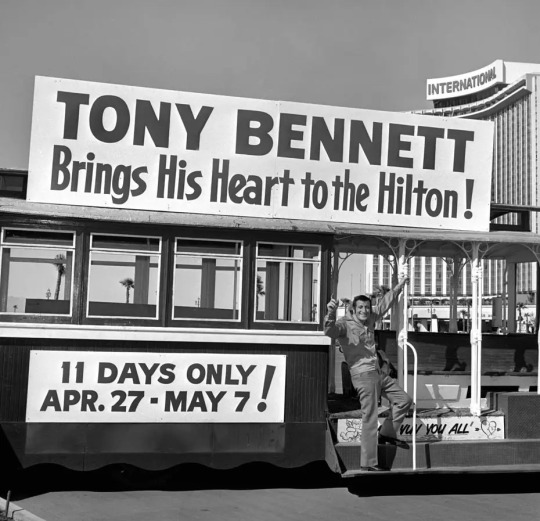
One day in 1979, high and in a panic, he took a bath to calm down and nearly died in the tub. In later years he would play down the seriousness of the event, but he wrote about it in “The Good Life,” describing what he called a near-death experience: “A golden light enveloped me in a warm glow. It was quite peaceful; in fact, I had the sense that I was about to embark on a very compelling journey. But suddenly I was jolted out of the vision. The tub was overflowing and Sandra was standing above me. She’d heard the water running for too long, and when she came in I wasn’t breathing. She pounded on my chest and literally brought me back to life.”
Mr. Bennett turned to his older son for help. Danny Bennett took over the management of his career, aiming to have the American musical standards that were his strength, and his handling of them, perceived as hip by a new generation.
Somewhat surprisingly, the strategy took hold. An article in Spin magazine, which was founded in 1985, declared Mr. Bennett and James Brown as the two foremost influences on rock ’n’ roll, and the magazine followed up with a long, admiring profile.
A Career Revival
Encouraged by executive changes at Columbia Records, Mr. Bennett returned to the Columbia fold in 1985. The next year he released the album “The Art of Excellence.” WBCN in Boston became the first rock station to give it regular airplay. Released in the emerging CD format, it spurred the sales of Mr. Bennett’s back catalog as music fans began replacing their vinyl records with CDs.
In 1993, Mr. Bennett was a presenter, along with two members of the Red Hot Chili Peppers, at MTV’s Video Music Awards. The next year he gave an hourlong performance for MTV’s “Unplugged” series, which included duets with K.D. Lang (with whom he would later tour) and Elvis Costello. The recording of the show won the Grammy for album of the year.
The revival of Mr. Bennett’s career was complete. Not only had he returned to the kind of popularity he had enjoyed 40 years earlier, but he had also been accepted by an entirely new audience.
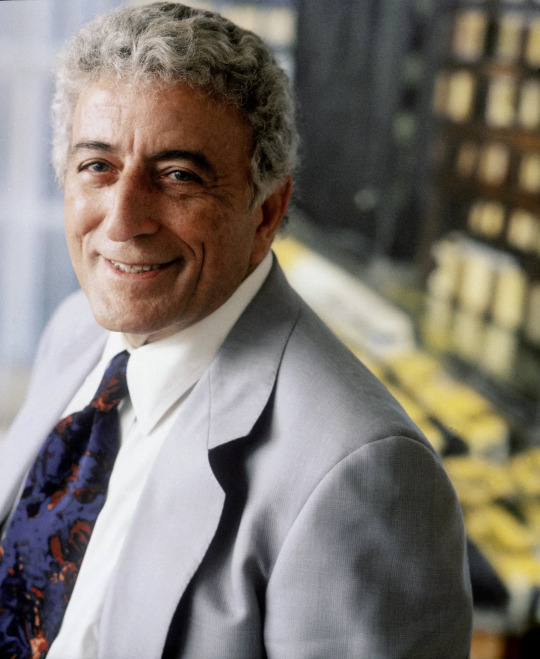
He recorded albums that honored musicians he admired — Duke Ellington, Louis Armstrong, Frank Sinatra and Billie Holiday — and he collaborated on standards with singers half, or less than half, his age. On the 2006 album “Duets: An American Classic,” he sang “If I Ruled the World” with Ms. Dion, “Smile” with Barbra Streisand and “For Once in My Life” with Stevie Wonder, and revisited his first Columbia single, “Boulevard of Broken Dreams,” with Sting. Five years later, on “Duets II,” his collaborators included Aretha Franklin, Queen Latifah, Willie Nelson and Ms. Winehouse.
As the century changed, he was once again touring, giving up to 200 performances a year, and recording prolifically.
In 2007 Mr. Bennett married a third time, to his longtime companion, Susan Crow, a teacher four decades his junior whom he had met in the late 1980s. Together they started a foundation, Exploring the Arts, that supports arts education in schools, and financed the Frank Sinatra School of the Arts, a public high school in Queens.
Mr. Bennett had lived in the same Manhattan apartment, where he died, for most of his adult life, except for a few years in Los Angeles and London, Ms. Weiner, his publicist, said. He is survived by his wife; his sons, Danny and Dae; his daughters, Johanna and Antonia Bennett; and 9 grandchildren.
If there was a magical quality to Mr. Bennett’s life, as suggested by David Evanier in a glowing 2011 biography, “All the Things You Are: The Life of Tony Bennett,” it is encapsulated by a story Mr. Bennett told to Whitney Balliett in 1974.
“I like the funny things in life that could only happen to me now,” he said. “Once, when I was singing Kurt Weill’s ‘Lost in the Stars’ in the Hollywood Bowl with Basie’s band and Buddy Rich on drums, a shooting star went falling through the sky right over my head and everyone was talking about it, and the next morning the phone rang and it was Ray Charles, who I’d never met, calling from New York. He said, ‘Hey, Tony, how’d you do that, man?’ and hung up.”
7 notes
·
View notes
Note
When people try to argue Elvis’s entire career was built on appropriation, I don’t think it’s fair. I know most of his movies aren’t good but I oddly feel like they best represent the fact he had his own unique flair and charisma?
none of his career is built on appropriation. it's not just unfair to say that, it's not factual. i'm sick of seeing this when it's one of the easiest things to debunk and to properly understand. he grew up influenced by that music and sharing in that culture due to his background, it wasn't appropriated, it's who he was. (BB King: "Elvis didn’t steal any music from anyone. He just had his own interpretation of the music he’d grown up on, same is true for everyone. I think Elvis had integrity." Jackie Wilson: "A lot of people have accused Elvis of stealing the black man’s music, when in fact, almost every black solo entertainer copied his stage mannerisms from Elvis." Little Richard: "I love him. That's my buddy, my baby. Elvis is one of the greatest performers who ever lived in this world." you've already seen the quotes list that breaks all of this down, i'm sure).
does everyone conveniently forget that the norm then was for singers to record songs written by professional songwriters? the artistry came from the performance of the music. bing, frank, ella, billie holiday, dean martin, peggy lee, nat king cole, tony bennett, perry como, doris day, the andrews sisters, i could go on and on, all sang songs written by other people, that's how it worked. the only difference is they sang standards and elvis came in at the advent of rock and roll. additionally, many of those songbook writers were white (and jewish, there are significant cultural reasons for this too). black musicians and black songwriters faced awful unfairness and difficulties, segregation and continual prejudice, and weren't played like they deserved to be, sun records was associated with making r&b/soul music, but elvis never walked in and stole anything. did he have advantages making the music he did because he was a white, handsome man? yes, and he and everyone were aware of that, but he also broke barriers through that while facing harsh judgment and criticism for it. he gave credit to the black artists he considered the definitive musicians repeatedly throughout his life.
all of his unique flair and charisma is in his music because it's in his *voice*. music columnist Michael R. Burch gave one of the best descriptions of this, "I cannot think of another male singer who can go from nearly infinite sweetness, to ferocity, to spirituality, to tremendous power the way Elvis does. With the right song in hand he was untouchable."
the movies...are what they are, and sometimes they're really fun despite that, and sometimes his frustration/listlessness is more apparent and it's clear he's not reaching the potential he wanted nor displaying the full range of his talent, but he still gives himself to the music. even when some of the songs weren't great either (i read an article yesterday that called the soundtracks "loathsome," which is also terrible and unfair and i don't agree with that as a whole), he never falters there, because it's as if he couldn't not give himself and the whole of his voice to making that music as perfect as possible for the audience he knew would listen to it. he learned new ways to express the subtleties and nuances of his voice and cadence and emotional performance in a lot of those soundtracks too, which served him when he did his later recordings and kept expanding that color and richness of tone.
Robert Matthew-Walker: “Presley’s vocal range was exceptional – amazingly so for an untrained singer. It ranged from Low F in the bass register to top B Flat and B in the tenor range. This is over two octaves: most people can only managed just over one octave. Quite apart from the range of Presley’s voice (and this range remained with him throughout his life, a fact proved by his recordings) the equally surprising thing was that its quality and distinctive timbre remained constant throughout this range. This is also exceptional and quite the most conclusive proof – if any were needed – that Elvis Presley possessed a natural gift for singing which was completely and utterly rare. For if it were not – where are all the other Elvis Presleys?"
Alan Wiess: "The transformation was incredible. We knew instantly that we were in the presence of a phenomenon, electricity bounced off the walls of the sound stage. One felt it as an awesome thing - like an earthquake in progress, only without the implicit threat. Watching this insecure country boy, who apologized when he asked for a rehearsal as though he had done something wrong, turn into absolute dynamite when he stepped in the bright lights…he believed in it, and he made you believe it, no matter how ‘sophisticated’ your musical tastes were. I had not been a fan until that point, but to deny his talent would have been as foolish as it was impossible. He was a force, and to fail to recognize it would be the same as sticking a finger into a live socket and denying the existence of electricity."
i'm sorry anon, any sadness/frustration i have here is not directed at you, i appreciate what you're saying about the movies!, they can be silly and dated, they can be questionable or enjoyable, regardless he and his signature dazzling charisma is often apparent and charming there, but i just cannot abide us now taking his tremendous and beautiful gifts in his music away from him, or pretending like that wasn't where his passion and true artistry shined brightest, and still resonates most. the music is everlasting.
#anonymous#letterbox#desperately need everyone to stop giving the time of day to baseless criticisms that don't know what they're talking about#specifically in regards to his music#it is so much more valuable than that#elvis presley#i was a dreamer
13 notes
·
View notes
Text
Strange Fruit Sept 8

Strange Fruit 10pm EST bombshellradio.com Archival Shows available on bombshellradiopodcasts.com Strange Fruit (10-midnight EST) cherry picks its way through four massively influential albums by an American who had almost all his hits in the UK. Bowie and Radiohead, and more others than we can name here claim this music as a massive influence, we’d claim to mix it with obscure psych, a bizarre 70’s reissue and enough obscure current sounds to make for two hours of unique radio. Join us: https://bombshellradio.com/ #scottwalker #newmusic #independentradio Artist Track Affleck’s Palace: Colour Photo Warmduscher: Fashion Week Renaissance: The Vultures Fly Scott Walker: Through a Long and Sleepless Night Our Plastic Dream: Encapsulated Marigold ANNOUNCEMENT Bill Leeb feat. Shannon Hemmett: Terror Forms Massive Scar Era: 30 Years Ty Segall: The Dance (Edit) Dar Disku feat. Yacine Elkhaldi: Dbayli Scott Walker: The Girls from the Streets Scott Walker: It’s Raining Today Goldfrapp: Horse Tears Martijn de Kleer The Time Has Come HERDING Summer Ben Bohmer (feat. Lykke Li): Hiding Gingham: From the Start The George School: The Bright Eyed Queen ANNOUNCEMENT Tony Curtis: Shizzle (Markle Neeko Remix) Val Bennett and the Upset All Stars: Stranger on the Shore Cosmic Buddha: Deep Freeze Hawkwind: Wastelands of Sleep Steve Allen: Three Little Pigs Joyce Moore: Don’t Play Number Ten Scott Walker: On your Own Again The Walker Brothers: Saturday’s Child Herve Perez: Nada Listening Meditation 16 David Crosby: I’d Swear there was Somebody Here Read the full article
0 notes
Text
Legendary Musicians - Best Incredibly Long Careers

Legendary Musicians, never forget their best career. When we think of musical legends, it’s not just their talent that stands out they can remain relevant and beloved through the decades. Some musicians have not only achieved incredible success but have maintained it throughout their careers, maintaining their unique style and constantly evolving with the times Let’s go to these legendary musicians whose careers have been long of the strange journeys of the wonderful.
Dolly Parton: One of the Best Legendary Musicians

Dolly Parton is a country music icon, known for her unique voice, songwriting skills, and larger-than-life personality. Her journey began in 1967 with the release of her first album, Hello, I Am Dolly. Fast forward to 2023, and Dolly is making waves in the music industry with her album Rockstar. From country classics like “Jolene” to her philanthropic efforts, Dolly Parton has become a cultural treasure whose influence transcends music. Tony Bennett: One of the Best Legendary Musicians

Tony Bennett’s work is a testament to the power of timeless music. When he began his career in the 1950s, Bennett was known for his smooth voice and flawless phrasing. His enduring popularity was confirmed by his collaboration with Lady Gaga on the 2021 album Love For Sale which brought his music to a new generation. Sadly, Bennett passed away in 2023, but his legacy lives on through his extensive repertoire that touched millions. Bob Dylan: Poet of a generation

Born the voice of a generation, folk singer and songwriter Bob Dylan began his career in the early 1960s. Known for his thought-provoking lyrics and unique voice, Dylan consistently releases songs that move listeners. His 2020 album Rough and Rowdy Ways is a reminder of his enduring talent and ability to connect with audiences of all ages. Elton John: One of the Best Legendary Musicians

Elton John’s music career began in the 1960s and he has been a global superstar ever since. Known for his classics and countless hits like “Rocket Man” and “Tiny Dancer,” Elton John never stopped innovating. His 2021 album The Lockdown Sessions showcases his flexibility and collaboration with artists in the genre, proving that Rocket Man is still soaring Paul McCartney: The Beatles Who Never Stop

As one of the most influential musicians in history, Paul McCartney’s career has spanned more than six decades. Since his rise to fame with The Beatles, McCartney has gone on to make music that touches fans around the world. His latest album McCartney III was released in 2020, and in 2018 his album Egypt Station also entered the UK Top 10. McCartney is active in the music industry, still touring and releasing his music he doesn’t have the time to save the audience Madonna: Queen of Reinvention, One of the Best Legendary Musicians

Madonna burst onto the music scene in 1983 with her self-titled debut album, quickly becoming the “Queen of Pop”. Known for her constant reinvention, Madonna had remained a major force in the music industry for decades. His influence on music, fashion, and pop culture is unparalleled, and he continues to tour and shows no signs of slowing down. Ozzy Osbourne: Prince of Darkness

Ozzy Osbourne, the legendary frontman of Black Sabbath, has had a life filled with highs, lows, and everything in between. Since Black Sabbath’s debut album in 1970, Ozzy has been a defining figure in both rock and heavy metal. His last album, Patient Number 9, released in 2022, won a Grammy for Best Rock Album. Although he officially retired from touring in 2023, Ozzy’s impact on rock music never dies. Keep Reading: Musical Cinema, Movies Iconic Roles. Leonard Cohen: Songwriting major

Leonard Cohen’s music is known for its deep, poetic lyrics and haunting melodies. His first album, Songs of Leonard Cohen, was released in 1967, and he continued to tour and release until he died in 2016. Cohen’s work is known for its philosophical depth, and musical sound, and his “Hallelujah” became an enduring anthem for generations to come. Willie Nelson: The red-headed alien who keeps riding

Willie Nelson is a living legend in country music, known for his unique voice, illicit imagery, and incredible songwriting. His career began with his first album in 1962, and he has since released more than 70 studio albums. At over 90 years old, Nelson shows no sign of slowing down, continuing to tour and make music that resonates with fans old and new. Conclusion These musicians are not just artists; They are icons who have done the music industry and influenced countless other artists. Their ability to remain relevant through the decades is a testament to their talent, resilience, and passion for music. Whether it’s Dolly Parton’s country charm, Elton John’s exquisite acting, or Willie Nelson’s timeless voice, these tales have proven that true art knows no bounds FAQs 1. Which of these legends is the oldest active musician? Born in 1933, Willie Nelson is the oldest active musician of the storied legends and continues to tour and record new music. 2. Which musician mentioned here won the most Grammys? Elton John won numerous Grammy Awards throughout his career, cementing his status as one of the most successful musicians in history. 3. Has Tony Bennett collaborated with any contemporary artists? Yes, Tony Bennett collaborated with Lady Gaga on several albums, including Cheek to Cheek and Love For Sale, bringing her music to a new generation of fans. 4. What was Ozzy Osbourne’s last album before he retired? Ozzy Osbourne’s last album before retiring was Patient Number 9, released in 2022, which won a Grammy for Best Rock Album. 5. Has Paul McCartney been touring in recent years? Yes, Paul McCartney has been touring and performing live, even releasing new music like the 2020 album McCartney III. Read the full article
0 notes
Text
From Teens to Seniors: Does Age Matter in the Music Industry?
Does age matter in the music industry? Success in the music industry spans all age groups. From teenage sensations to senior musicians, the industry is rich with diverse talents contributing unique perspectives and sounds. This article explores how artists from different age brackets find success, the challenges they face, and the value they bring to the ever-evolving world of music.
Teen Sensations: Teenage musicians have always been a significant part of the music industry, captivating audiences with their youthful energy and fresh perspectives. Artists like Billie Eilish and Shawn Mendes started their careers in their teens and quickly rose to fame. The advantages for young musicians include a high level of adaptability, a natural understanding of social media, and the ability to connect with a younger audience. However, they also face challenges such as balancing education with their music career, coping with industry pressure, and navigating the complexities of fame at a young age.
Mid-Career Artists: Artists in their mid-career, typically ranging from their late 20s to 40s, often find a sweet spot in the music industry. This stage is marked by a blend of youthful energy and growing experience. Artists like Beyoncé and John Legend exemplify this group, achieving both commercial success and critical acclaim. Mid-career musicians benefit from a deeper understanding of the industry, a more refined artistic vision, and established fan bases. However, they may face challenges such as staying relevant in a rapidly changing industry and balancing personal life with professional demands.
Senior Success: Senior musicians, those who have either sustained long careers or found success later in life, bring a wealth of experience and authenticity to the music scene. Icons like Leonard Cohen and Johnny Cash demonstrated that age is no barrier to making impactful music. These artists often possess a profound depth in their lyrics and music, reflecting their life experiences. They face challenges like age-related stereotypes and adapting to new technology and marketing strategies. However, their seasoned perspective and enduring passion often resonate deeply with audiences.
Universal Traits: Despite the age differences, successful artists often share several common traits. Passion for music, dedication to their craft, and the ability to connect with their audience are crucial for success at any age. Additionally, resilience and adaptability are essential in navigating the ups and downs of the music industry.
Cross-Generational Influence: One of the most fascinating aspects of the music industry is the influence that artists of different ages have on each other. Younger musicians often draw inspiration from the legends who came before them, while older artists can learn new trends and technologies from the younger generation. Collaborations across age groups can lead to innovative and exciting music. For example, the collaboration between Tony Bennett and Lady Gaga showcases how age diversity can produce extraordinary results.
Evolving Industry: The music industry is constantly evolving, and with it, the perception of age. Digital platforms, social media, and streaming services have democratized music distribution, allowing artists of all ages to reach global audiences. The rise of independent music production has also empowered artists to maintain creative control and longevity in their careers. As the industry continues to evolve, the importance of age is diminishing, making room for talent and innovation from all generations.
Conclusion: Does age matter in the music industry? While age can influence an artist's journey and the challenges they face, it is not a definitive factor in determining success. From teenage prodigies to seasoned veterans, the music industry thrives on the diversity of its artists. Talent, passion, and the ability to connect with audiences transcend age, proving that music is truly a universal language that knows no boundaries.
0 notes
Text

Kenneth Earl Burrell (July 31, 1931) is a jazz guitarist known for his work on the Blue Note label. His collaborations with Jimmy Smith produced the 1965 Billboard Top Twenty hit album Organ Grinder Swing. He has cited jazz guitarists Charlie Christian and Django Reinhardt as influences, along with blues guitarists T-Bone Walker and Muddy Waters.
He was born in Detroit. Both his parents played instruments and he began playing guitar at the age of 12. During WWII, due to a metal shortage, he abandoned the idea of becoming a saxophonist and bought an acoustic guitar for $10. He went on to study composition and theory with Louis Cabara and classical guitar with Joe Fava. While a student at Wayne State University, he made his recording debut as a member of Dizzy Gillespie’s sextet, followed by the “Rose of Tangier”/“Ground Round” single recorded under his name. While in college, he founded the New World Music Society collective with fellow Detroit musicians Pepper Adams, Donald Byrd, Elvin Jones, and Yusef Lateef.
In 1978, he began teaching a course at UCLA called “Ellingtonia,” examining the life and accomplishments of Duke Ellington. Although the two never collaborated directly, Ellington called him his “favorite guitar player” and he has recorded several tributes to and interpretations of Ellington’s works. He has served as Director of Jazz Studies and Professor at UCLA Herb Albert School of Music.
He toured with Oscar Peterson after graduating from Wayne State and then moved to New York City with pianist Tommy Flanagan. He had recorded his first album as a leader for Blue Note and both he and Flanagan were sought-after as sidemen and studio musicians, performing with singers Tony Bennett and Lena Horne and recording with Billie Holiday, Jimmy Smith, Gene Ammons, and Kenny Dorham, among others. He occupied the former chair of Charlie Christian in Benny Goodman’s band. He has had a prolific recording career, and critics have cited The Cats with John Coltrane, Midnight Blue with Stanley Turrentine, and Guitar Forms with arranger Gil Evans as particular highlights. #africanhistory365 #africanexcellence #kappaalphapsi
1 note
·
View note
Text
Lady Gaga Pays Tribute to Tony Bennett on Anniversary of His Death
On the first anniversary of Tony Bennett’s passing, Lady Gaga honored her dear friend and collaborator with a moving tribute. Bennett, who died at 95, is remembered not only for his legendary career but also for his profound influence on those who knew him personally and professionally. Celebrating a Musical Legend Lady Gaga took to social media to commemorate Bennett’s legacy, highlighting…
0 notes
Text










Happy heavenly birthday to Johnnie Ray. On a stage, he was like a punk rocker in a lounge singer's body. His vocal style crossed Billie Holiday-jazz-vocalese with blues and pop standards, foreshadowing rock'n'roll and modern r'n'b. He was practically deaf, and some say that prompted his loud vocal delivery, as he threw his entire body into the notes with over-the-top emotion. Born in Oregon, he was a singer-songwriter and pianist who developed his animated style in small African American nightclubs in Detroit. That’s where he was discovered in 1949 and signed to Okeh Records (the R&B subsidiary of Columbia). His star rose fast, netting him roles in feature films, and Tony Bennett called Ray “the father of rock’n’roll” as he generated teen hysteria well before Elvis Presley. Today Ray is cited as an influence on artists ranging from Leonard Cohen to Morrissey.
Ray had several hits in his early career (he wrote “The Little White Cloud That Cried”), but “Cry” became his signature work, becoming an international chartbuster when it debuted in 1951. In Ray’s original vocal-heavy arrangement with The Four Lads, the arching chord progression is relatively straightforward, suitable for country, jazz, or pop renditions. The progression repeats two times (no bridge) and builds to a passionate outburst, taking us from a broken heart to a bittersweet climax. Letting the tears flow leads us to a healing revelation, to finding “the light behind the cloudy skies.”https://www.youtube.com/watch?v=BDOvIR3Kn_8 Produced by Mitch Miller, Ray’s single lodged in the US charts for three months. “Cry” has been remade countless times and it was a repeat hit with Ronnie Dove (1966), Lynn Anderson (1972), and Crystal Gayle (1986), but no one has taken ownership from Ray’s heart-wrenching delivery of “Cry.”
His 1952 JOHNNIE RAY debut LP on Columbia Records stayed in the charts for four months. It featured the single “Walkin’ My Baby Back Home” as well as sturdy covers of “cowboy songs.” After a string of sell-out concerts and hit TV appearances, he turned in an admirable acting role in the major motion picture THERE’S NO BUSINESS LIKE SHOW BUSINESS with Ethel Mermen and Marilyn Monroe. However, due to a variety of factors, Ray’s star faded in America and he was dropped by Columbia in 1960. Fortunately, he continued to draw audiences in Australia, England, and in Europe. Then his American career rebounded in the 1980s. In this clip, you can hear he still had the power, singing “Cry” in the same key of C he did as a younger man https://www.youtube.com/watch?v=8AYZ0Omz1h4 He passed away in 1990 (age 63).
For many years I worked with Davy Jones (of The Monkees), and Davy he was a big fan of Ray. Davy met Ray in the 1970s, saying, “It was when Ray was in a career slump, playing with a pick-up band in a dingey Manhattan nightclub. The band kept trying to put funk into the songs, but it wasn’t working. It was kind of sad, but at least I got to meet him.”
Davy wanted to produce a musical about Ray, and in 2008 Davy and I sat and studied stacks of Johnnie Ray videos and took notes. We also interviewed first-wave fans of Ray who’d seen him in the 1950s and got his autograph. In an obvious move, Davy remade “Cry” for his 2009 SHE album, and his “Cry” cover is the star of the album—a recording with that mystique that comes when lyrical intent, sounds, and raw feelings push into a timeless realm. The stunning orchestrations by Chris Andrews and Skip Kline blend perfectly with Davy's powerful vocal--arguably one of the strongest in his career. 12 years later I revisited the track to make this video. https://www.youtube.com/watch?v=Qc-wUPJ1LX4 Suddenly, waves of emotion came over me, then I cried for 2 days. Then I felt better, just like the song promised.
In 2023 I added “Cry” to the set list I perform in assisted living homes (demographically it folds right in). In a nearly Pavlovian response, I cry when I perform it. Perhaps it’s the waves of emotional and spiritual invested in “Cry,” washing through me and reminding me of the lives who’ve been reached by one little song. HB JR, and thank you for your voice and expression.
#davyjones #monkees #johnnieray #cry #loungesinger #popmusic #chrisandrews #skipkline #johnnyjblair #felipetorres #emotions #marilynmonroe #mouseketeers #singersongwriter
1 note
·
View note
Text
"Bad romance" and "Royals"
We're nearing the end of the #FearOfMu21c project, crowdsourcing the greatest singles of the 21st century. Here’s an index post.
Bad romance - Lady Gaga
Which Lady Gaga song to pick? And do we consider the video when making the decision: if so, then "Telephone" is going to be a very strong contender, even though the song is far from her best. Gaga's songs fall into three camps - in-yer-face statements like "Born this way", powerhouse vocals like "Shallow", and artpop.
We wouldn't know Gaga if she hadn't done artpop, and the best example is "Bad romance". Released in late 2009, Gaga was adventurous, playful, and had a strong message to sell. Like the rest of "The Fame" album, it's a commentary on the aughts decade: obsessed with popularity and celebrity, hedonistic and flashing a lot of skin.
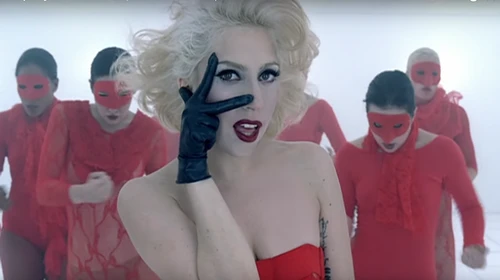
And, yes, we're influenced by the video. Alexander McQueen sent in the costumes worn by Gaga and her dancers, not the sort of thing you'll see on sale at Primark on Wednesday week. Full of white latex, orbiting rings, a chandelier top, the clip shows Gaga as a pawn for sale, an amusement for rich men.
Shorn of the video, "Bad romance" still works. It's a throwback to early 90s eurodance, all hooks and a soaring chorus. The "woah-oh-oh-oh" at the front was how Gaga started work on the song, finished with producer RedOne. There are little musical mutations throughout, cadences rise and fall on their own accord, and the home key (A-flat minor) is rarely visited. And that's just one reason "Bad romance" still sounds awesome.
In the years since, Gaga swore her love for queers on "Born This Way", made "Artpop", worked with Tony Bennett on "Cheek to cheek", and acted in "American Horror Story" and "A Star is Born". For the last of these, Gaga won an Oscar for "Shallow" - and that very nearly made my 50.
youtube
Royals - Lorde
Writing from the heart, Lorde penned "Royals" in less than an hour. The song reads like a teenage diary, frustrated and irritated and aspiring for her better world. The song contrasts Lorde's humdrum suburban life to those of the stars and celebrities.
"What really got me is this ridiculous, unrelatable, unattainable opulence. Lana Del Rey is always singing about being in the Hamptons or driving her Bugatti Veyron or whatever, and at the time, me and my friends were at some house party worrying how to get home because we couldn't afford a cab. This is our reality! If I write songs about anything else then I'm not writing anything that's real."

"Royals" has a sense of place, it comes from being on the fringes of the dominant culture. It's a song from Aotearoa, it could be a song from Newfoundland or Derry. We see the materialist stuff, we're exposed to celebrity, and - through an accident of geography - we can never join it. Lorde advances the conversation started by Lady Gaga.
Lorde has proven more than this one hit, releasing the album "Melodrama" and pro-Antarctic book "Going South". I seriously considered "Solar Power"'s single "Secrets from a girl (who's seen it all)" for the Top 50, losing out for variety.
youtube
#lady gaga#bad romance#art#artpop#modern art#lorde#royals#cultural reflection#isolation#fear of missing out#2009#2013#fear of mu21c#fear of music#FearOfMu21c#fearofmu21c#pop music#21st century
1 note
·
View note
Text
Inspirational Veterans: Making a Mark in the Arts and Entertainment
Inspirational Veterans: Making a Mark in the Arts and Entertainment http://chuckschmalzried.net/inspirational-veterans-making-a-mark-in-the-arts-and-entertainment/?utm_source=rss&utm_medium=rss&utm_campaign=inspirational-veterans-making-a-mark-in-the-arts-and-entertainment The arts and entertainment industry has always been a platform for creativity, self-expression, and storytelling. It’s a world where individuals can captivate audiences, inspire change, and leave a lasting impact. Many military veterans have transitioned from service to making their mark in this dynamic and often challenging field. Their journeys are remarkable and serve as a testament to the power of resilience, determination, and the human spirit. James Earl Jones: James Earl Jones, an iconic actor with one of the most recognizable voices in the world, served in the United States Army during the Korean War. Morgan Freeman: Morgan Freeman was an Air Force radar technician known for his powerful on-screen presence and narration work. Freeman’s distinct voice and acting have made him a beloved figure in Hollywood. Ice-T: Before becoming a successful musician, actor, and television personality, Ice-T served in the U.S. Army and was honorably discharged. Tony Bennett: The legendary singer and performer Tony Bennett was drafted into the U.S. Army during World War II. He is celebrated for his contributions to jazz and popular music, with timeless hits like “I Left My Heart in San Francisco.” Bennett’s enduring career has garnered numerous accolades, including multiple Grammy Awards. Adam Driver: Adam Driver, known for his compelling performances in films like “Marriage Story” and his role as Kylo Ren in the “Star Wars” sequel trilogy, served in the Marine Corps. His experiences in the military have informed his acting and advocacy work, particularly in support of fellow veterans. Rob Riggle: Rob Riggle, a former Marine Corps officer, transitioned from his military service to a successful career in comedy and acting. He has appeared in various films and television shows, including “The Hangover” and “The Daily Show.” Harry Belafonte: Harry Belafonte, a singer, actor, and social activist, served in the U.S. Navy during World War II. He has used his fame and influence to advocate for civil rights and humanitarian causes, significantly impacting the entertainment industry and society. These veterans who have made a mark in the arts and entertainment industry exemplify the spirit of resilience and adaptability that many servicemen and women carry with them as they transition to civilian life. Their experiences in the military have informed their creative work and often fuel their commitment to making a positive impact on society. The post Inspirational Veterans: Making a Mark in the Arts and Entertainment first appeared on Chuck Schmalzried | Stories of Heroes. via Chuck Schmalzried | Stories of Heroes http://chuckschmalzried.net October 27, 2023 at 01:00AM
0 notes
Video
youtube
Tony Bennett Words of Wisdom #history #fact #motivate #quote #motivatio...
Tony Bennett, born on August 3, 1926, is an iconic American singer, performer, and artist known for his exceptional vocal talent and enduring influence on the music industry. Here's a short description of this legendary figure:
Tony Bennett, whose birth name is Anthony Benedetto, has enjoyed a remarkable career spanning over seven decades. He first gained prominence in the early 1950s with his signature crooning style and has since become one of the most celebrated and respected voices in popular music. His timeless hits include classics like "I Left My Heart in San Francisco," "The Way You Look Tonight," and "Fly Me to the Moon."
Bennett's vocal prowess and interpretive skills have earned him numerous awards, including multiple Grammy Awards. His music transcends genres, encompassing jazz, traditional pop, and more, making him a versatile and beloved artist with a wide-ranging fan base.
Beyond his musical accomplishments, Tony Bennett is also an accomplished painter, and his artwork has been exhibited in galleries around the world. He has embraced philanthropy, advocating for arts education and supporting charitable causes.
Throughout his career, Tony Bennett has remained an exemplar of elegance, grace, and artistic excellence. He continues to perform, record, and inspire new generations of music enthusiasts with his enduring talent and dedication to the craft of music.
#youtube#Tony Bennett#Singer#Actor#Jazz#Swing#Blues#Grammy Awards#tumblr#reddit#twitter X#X#instagram#facebook#Subscribe#Like#Share#Follow#Live#Life#Love#Music
1 note
·
View note
Link
0 notes